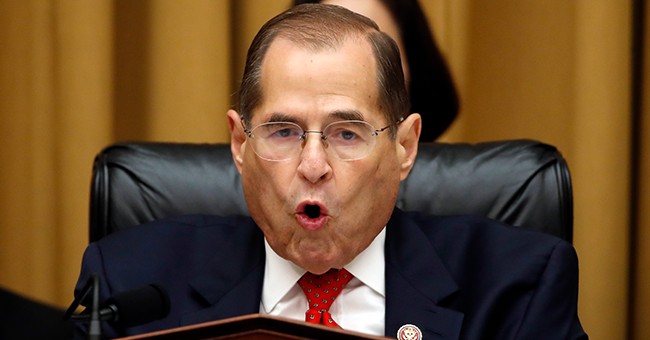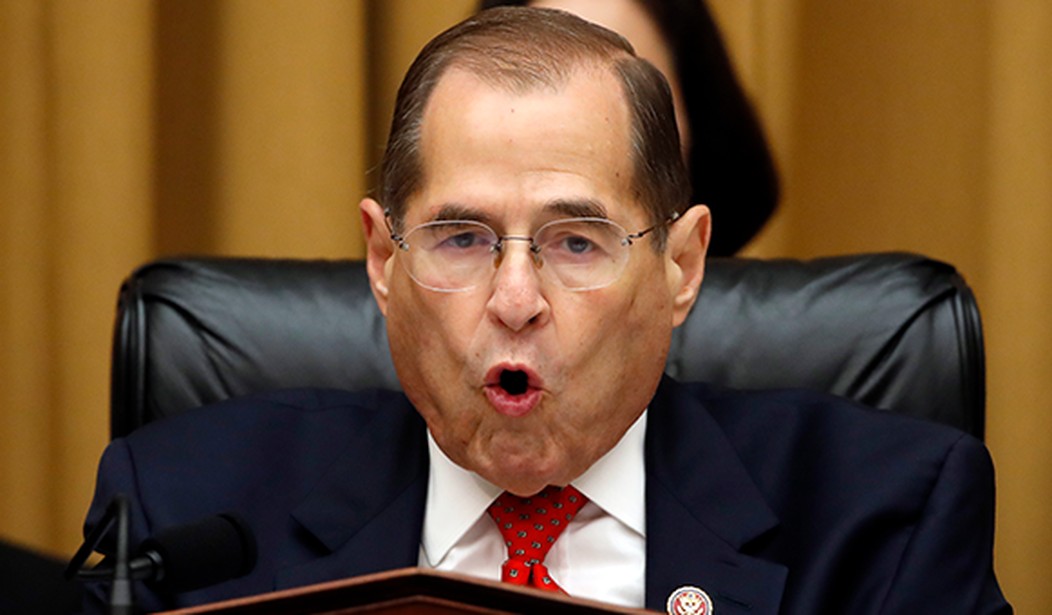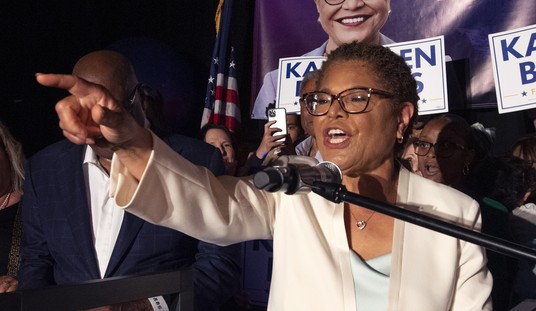
Judiciary Committee Chairman Jerrold Nadler, D-N.Y., gives his opening statement as former special counsel Robert Mueller testifies before the House Judiciary Committee hearing on his report on Russian election interference, on Capitol Hill, Wednesday, July 24, 2019, in Washington. (AP Photo/Alex Brandon)
On Tuesday, the U.S. Court of Appeals for the D.C. Circuit upheld a lower court ruling which would force the Department of Justice to hand over the secret grand jury material from the Special Counsel’s investigation of President Trump to House Democrats. This decision would give them access to the redacted portions of the Mueller report.
The 2 to 1 ruling by a three judge panel can and most certainly will be appealed to either the full court or to the Supreme Court.
House Democrats originally filed this lawsuit in July 2019 and this appeal was filed on January 3, 2020. The Democrats were still sitting on the Articles of Impeachment accusing Trump of pressuring the Ukrainian government into opening an investigation into the Bidens. Looks like they were covering all their bases.
Judge Neomi Rao, a Trump appointee, dissented. She argued, “The Committee can point to no statutory entitlement to this information and the judicial relief it seeks is contrary to historical practice and the separation of powers.”
Additionally, she wrote, “A reasonable observer might wonder why we are deciding this case at this time. After all, the Committee sought these materials preliminary to an impeachment proceeding and the Senate impeachment trial has concluded. Why is this controversy not moot? The majority simply turns a blind eye to these very public events.”
However, the impeachment had nothing to do with the Mueller report. Lawyers for the House Judiciary Committee told the court that “lawmakers are still trying to determine whether Trump lied in his written responses to questions from Mueller’s investigators.”
The full opinion can be viewed here.
Here is a summary of the majority opinion in the case from The Washington Post:
Judge Judith W. Rogers found the House in its impeachment investigation was legally engaged in a judicial process that exempts Congress from secrecy rules that typically shield grand jury materials from disclosure. Grand jury records, she noted, are court records — not Justice Department records — and have throughout history been released to Congress in the course of impeachment investigations involving three federal judges and two presidents.
“Where the Department is legally barred from handing over grand jury materials without court authorization, judicial restraint does not empower Congress; it impedes it,” wrote Rogers, who was joined by Judge Thomas B. Griffith.
The Justice Department is reviewing the decision to determine next steps, spokeswoman Kerri Kupec said. A spokeswoman for House Speaker Nancy Pelosi (D-Calif.) did not immediately respond to a request for comment.The appeals court was reviewing an earlier ruling from Chief U.S. District Judge Beryl A. Howell.
Justice Department lawyers had urged the appeals court to stay out of a political dispute between Congress and the Trump administration, and said exemptions allowing disclosure in certain cases do not apply to an impeachment proceeding.Justice Department lawyers suggested a previous Watergate-era ruling affirming that grand-jury materials could be shared with the House during the investigation of President Richard Nixon had been wrongly decided.
But the court majority disagreed, finding that secrecy concerns do not outweigh the House’s need to review the material and its investigative powers.
The House Judiciary Committee’s “need for the grand jury materials remains unchanged. The Committee has repeatedly stated that if the grand jury materials reveal new evidence of impeachable offenses, the Committee may recommend new articles of impeachment,” Rogers wrote in a 26-page opinion.
“Courts must take care not to second-guess the manner in which the House plans to proceed with its impeachment investigation or interfere with the House’s sole power of impeachment,” wrote Rogers, a nominee of former president Bill Clinton.














Join the conversation as a VIP Member